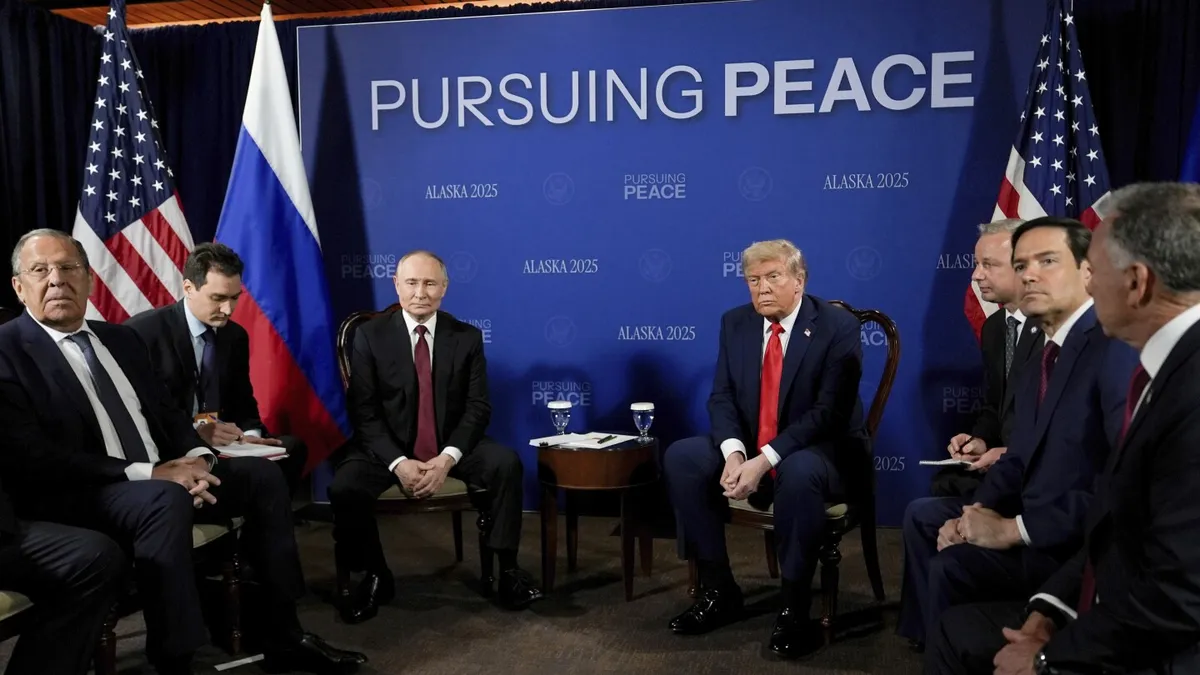
In a significant development for international relations, Ukrainian President Volodymyr Zelenskyy announced on Saturday his plans to meet with U.S. President Donald Trump in Washington next week. This meeting comes on the heels of Trump's summit with Russia's Vladimir Putin, which concluded without a clear agreement to resolve the ongoing war in Ukraine.
Zelenskyy revealed that he had a “long and substantive” conversation with Trump after the U.S. leader's meeting with Putin in Alaska. During this call, he expressed gratitude for Trump’s invitation to meet in person on Monday, emphasizing the urgency of discussing ways to “end the killing and the war.” The timing of this meeting is crucial, as it comes shortly after Trump hosted Putin, who visited the U.S. for the first time in a decade.
During his discussions, Zelenskyy reiterated the necessity of involving Europe in the peace process. He stated, “It is important that Europeans are involved at every stage to ensure reliable security guarantees together with America.” Zelenskyy hinted at “positive signals” from the U.S. regarding its role in guaranteeing Ukraine’s security, although he did not provide specific details. Previous remarks by Zelenskyy indicated that European partners had paused a proposal for a foreign troop presence in Ukraine, which was seen as a deterrent against future Russian aggression, due to the absence of American support.
Following the summit, Trump remarked in Alaska that “there’s no deal until there’s a deal,” referring to the discussions with Putin. He indicated that the responsibility might ultimately fall on Zelenskyy to facilitate progress, while also noting that European nations would play a role in the negotiations. Trump did not address reporters during his flight back to Washington but was said to have been in contact with NATO leaders after his conversation with Zelenskyy, which lasted over an hour and a half.
In addition to his discussion with Zelenskyy, Trump reportedly spoke with various European leaders, including German Chancellor Friedrich Merz, French President Emmanuel Macron, and British Prime Minister Keir Starmer. These conversations are crucial as they reflect a concerted effort among Western allies to address the ongoing crisis in Ukraine and coordinate their approaches to Russian aggression.
Zelenskyy expressed support for Trump’s idea of a trilateral meeting involving the U.S., Russia, and Ukraine, suggesting that “key issues can be discussed at the level of leaders.” However, Russian officials, including Putin's foreign affairs adviser Yuri Ushakov, indicated that such a meeting has not yet been discussed in U.S.-Russia dialogues. This highlights the complexities and challenges in forging a unified approach to the situation in Ukraine.
Despite diplomatic efforts, military hostilities continue. Ukrainian forces reported overnight attacks involving one ballistic missile and 85 Shahed drones, with 61 drones being intercepted. Areas including Sumy, Dnipropetrovsk, Donetsk, and Chernihiv faced significant assaults, underscoring the ongoing volatility in the region.
As the situation develops, the upcoming meeting between Zelenskyy and Trump will be closely watched, with hopes for a renewed focus on achieving a peaceful resolution to the conflict in Ukraine.